Teradata vs Vertica
May 26, 2023 | Author: Michael Stromann
11
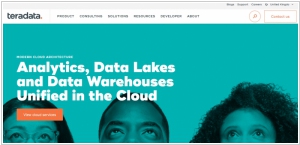
Teradata Aster features Teradata Aster SQL-GR analytic engine which is a native graph processing engine for Graph Analysis across big data sets. Using this next generation analytic engine, organizations can easily solve complex business problems such as social network/influencer analysis, fraud detection, supply chain management, network analysis and threat detection, and money laundering.
7
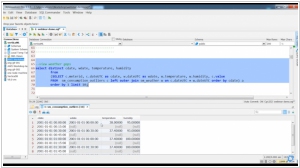
Vertica offers organizations new and faster ways to store, explore and serve more data. Vertica lets organizations store data in a cost-effectively, explore it quickly and leverage well-known SQL-based tools to get customer insights. By offering blazingly-fast speed, accuracy and security, it offers operational advantages to the entire organization.
See also:
Top 10 Big Data platforms
Top 10 Big Data platforms
Teradata and Vertica are both powerful analytical database platforms that offer high-performance analytics and data processing capabilities.
Teradata is a well-established player in the data warehousing market, known for its scalability, parallel processing architecture, and comprehensive analytics features. Teradata excels in handling large-scale, enterprise-level data workloads, providing advanced analytics capabilities, data integration, and transformation functionalities. It offers a wide range of tools and capabilities for data management, data governance, and data analytics, making it suitable for organizations with complex data environments and diverse analytical requirements.
Vertica, on the other hand, is a columnar database management system specifically designed for analytics and big data workloads. Vertica's architecture enables fast query performance and efficient data compression, making it ideal for real-time analytics and high-speed data processing. It is known for its scalability, flexibility, and ability to handle large volumes of data.
See also: Top 10 Big Data platforms
Teradata is a well-established player in the data warehousing market, known for its scalability, parallel processing architecture, and comprehensive analytics features. Teradata excels in handling large-scale, enterprise-level data workloads, providing advanced analytics capabilities, data integration, and transformation functionalities. It offers a wide range of tools and capabilities for data management, data governance, and data analytics, making it suitable for organizations with complex data environments and diverse analytical requirements.
Vertica, on the other hand, is a columnar database management system specifically designed for analytics and big data workloads. Vertica's architecture enables fast query performance and efficient data compression, making it ideal for real-time analytics and high-speed data processing. It is known for its scalability, flexibility, and ability to handle large volumes of data.
See also: Top 10 Big Data platforms
Teradata vs Vertica in our news:
2016. HP to sell its software business to Micro Focus
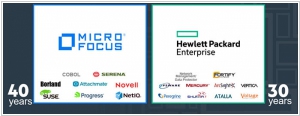
Hewlett-Packard Enterprise (HPE) has reached an agreement to sell its software business to Micro Focus in a substantial $8.8 billion deal. One significant component of HP Enterprise software, Autonomy, constitutes a quarter of the total value and was initially acquired by HP for $11 billion in 2011. The software business being sold also encompasses Mercury Interactive, which HP acquired for $4.5 billion in 2006, Vertica for $320 million, and ArcSight for $1.5 billion in 2010. HPE's Chief Executive, Meg Whitman, intends to shift the company's focus towards other sectors such as networking, storage, and technology services following its separation from computer and printer manufacturer HP Inc. in the previous year.
2015. Teradata acquired app marketing platform Appoxee

Analytics company Teradata has recently acquired Appoxee, an Israeli push-messaging startup that focuses on assisting publishers and developers in enhancing user engagement within their applications. The acquisition, valued at approximately $20 million, addresses a significant challenge faced by app developers today: retaining users and encouraging them to actively utilize their apps amidst the constant influx of new applications entering the market. Appoxee provides developers with a solution by leveraging push messages, which serve as reminders to complete a game, deliver updates about app enhancements, or offer coupons for in-app purchases. Additionally, Appoxee offers a platform to facilitate the creation and execution of these push messaging campaigns.
2014. Teradata acquired data-archiving service RainStor
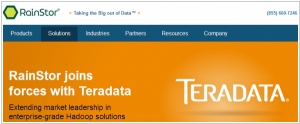
Data warehouse vendor Teradata continues to expand its presence in the realm of Big Data through strategic acquisitions. In its latest move, Teradata has acquired data-archiving specialist RainStor for an undisclosed sum, marking its fourth acquisition this year. RainStor specializes in developing an archival system that can be integrated with Hadoop and claims to achieve data volume compression of up to 95 percent. Teradata's acquisitions, including Hadapt and Think Big Analytics, demonstrate the company's ambition to play a more significant role in organizations' big data environments, transcending its traditional position as a data warehouse and business intelligence provider.
2014. MapR partners with Teradata to reach enterprise customers
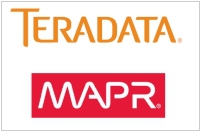
The last remaining independent Hadoop provider, MapR, and the prominent big data analytics provider, Teradata, have joined forces to collaborate on integrating their respective products and developing a unified go-to-market strategy. As part of this partnership, Teradata gains the ability to resell MapR software, professional services, and provide customer support. Essentially, Teradata will act as the primary interface for enterprises that utilize or aspire to use both technologies, serving as the representative for MapR. Previously, Teradata had established a close partnership with Hortonworks, but it now extends its collaboration and analytic market leadership to all three major Hadoop providers. Similarly, earlier this week, HP unveiled Vertica for SQL on Hadoop, enabling users to access and analyze data stored in any of the three primary Hadoop distributions—Hortonworks, MapR, and Cloudera.
2014. HP plugs the Vertica analytics platform into Hadoop
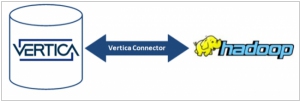
HP has unveiled the introduction of Vertica for SQL on Hadoop, a significant announcement in the world of analytics. With Vertica, customers gain the ability to access and analyze data stored in any of the three primary Hadoop distributions: Hortonworks, MapR, and Cloudera, as well as any combination thereof. Given the uncertainty surrounding the dominance of a particular Hadoop flavor, many large companies opt to utilize all three. HP stands out as one of the pioneering vendors by asserting that "any flavor of Hadoop will do," a sentiment further reinforced by its $50 million investment in Hortonworks, which currently represents the favored Hadoop flavor within HAVEn, HP's analytics stack. HP's announcement not only emphasizes the platform's interoperability but also highlights its capabilities in dealing with data stored in diverse environments such as data lakes or enterprise data hubs. With HP Vertica, organizations gain a seamless solution for exploring and harnessing the value of data stored in the Hadoop Distributed File System (HDFS). The combination of Vertica's power, speed, and scalability with Hadoop's prowess in handling extensive data sets serves as an enticing proposition, potentially motivating hesitant managers to embrace big data initiatives confidently. HP's comprehensive offering provides a compelling avenue for organizations to unlock the potential of their data, urging them to venture beyond their reservations and embrace the world of big data.
2014. Teradata is launching its own Hadoop cloud service
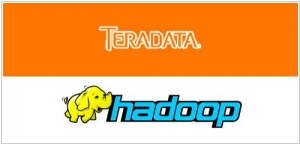
Data warehouse provider Teradata has recently announced the launch of its Hadoop cloud service, along with a new and significant partnership with Cloudera. Over the past few years, Teradata has been engaged in a debate regarding the potential threat posed by the open-source Hadoop platform and its expanding capabilities to its multibillion-dollar business of selling proprietary and costly database software and appliances. Regardless of whether Teradata is genuinely concerned, the company is taking extensive measures to embrace Hadoop and incorporate it into its sales cycle. The partnership with Cloudera stands out as one of Teradata's major recent initiatives, partially loosening the existing tight collaboration between Teradata and Cloudera's competitor, Hortonworks.
2014. Teradata buys big data consulting firm Think Big Analytics

Data warehouse vendor Teradata has made a strategic move to enhance its expertise in big data by acquiring Think Big Analytics, a consulting firm specializing in assisting clients with the implementation of open source technologies and the development of analytics applications. Think Big Analytics excels in deploying extensive and intricate infrastructures, with Teradata serving as a significant component, albeit a substantial and often costly one. In the competitive landscape, rivals like Pivotal, IBM, and Oracle are promoting comprehensive suites of data analytics systems. Even emerging players like Cloudera are encroaching on Teradata's domain with data warehouse alternatives that offer lower costs for higher storage capacities, although they may be less advanced in functionality.
2014. HP Vertica introduces SQL-on-Hadoop
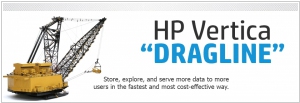
HP's Big Data platform, Vertica, has recently undergone an update to its new version, 7.1, codenamed "Dragline." This release brings forth several enhancements including SQL-on-Hadoop capability, improved access control, optimized backups, expanded support for Flex Zone data formats, dynamic resource management, and more. The standout feature in this version is the ability to execute SQL queries directly on Hadoop Distributed File System (HDFS) without the need for connectors. However, for faster and in-depth analytics, the data would still need to be moved into Vertica. It is worth noting that, as mentioned in a previous post about SQL-on-Hadoop, MapR and Vertica can be operated on the same hardware, leading to cost savings and improved integration between the two platforms.
2014. Teradata acquired Hadapt, Revelytix for Big Data boost
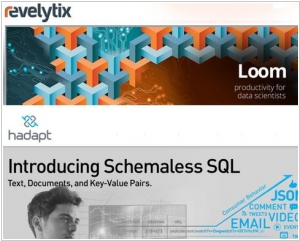
Teradata has initiated the consolidation of the big data market through the acquisition of two prominent vendors in the big data sphere. One of these vendors is Hadapt, which offers a comprehensive analytics environment capable of analyzing data in both Hadoop and traditional SQL environments. The other vendor is Revelytix, whose data-management suite, now known as Loom, aids Hadoop users in managing data complexity by discovering data, generating metadata, and tracking data lineage. Teradata emphasized that the acquisition of Revelytix equips them with data-management and data-preparation tools for Hadoop, addressing a previous gap in their offerings. Furthermore, the inclusion of the Revelytix team brings valuable expertise in metadata management to Teradata.



